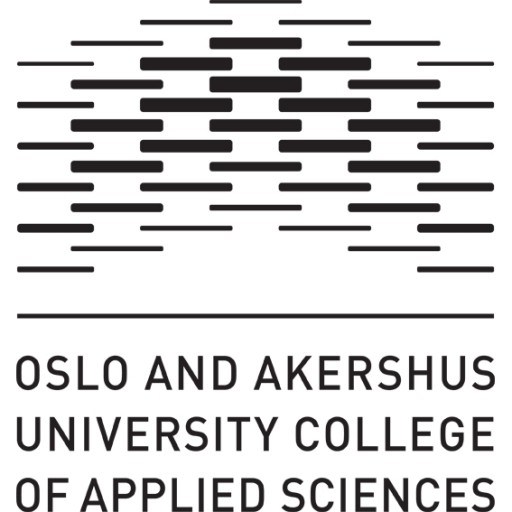Photos of university / #ntnu
The Master’s programme in Urban Ecological Planning at the Norwegian University of Science and Technology (NTNU) offers an in-depth education for students interested in sustainable urban development and environmental planning. This interdisciplinary programme combines principles from ecology, urban planning, architecture, and social sciences to prepare students for addressing complex challenges related to urbanization and environmental sustainability. Throughout the programme, students will explore the integration of ecological considerations into urban planning processes, aiming to develop environmentally responsible and resilient cities. The curriculum emphasizes practical skills, innovative planning strategies, and theoretical knowledge, equipping graduates to work effectively with policymakers, urban developers, environmental organizations, and communities. Students will have the opportunity to engage with real-world projects, participate in research activities, and collaborate with industry professionals. The programme covers topics such as urban biodiversity, green infrastructure, climate adaptation, sustainable transportation, and land use planning, fostering a holistic understanding of how cities can be designed to promote ecological health while supporting social and economic vitality. With access to NTNU’s cutting-edge research facilities and strong connections with the industry, students will be well-prepared to contribute to sustainable urban transformations globally. The programme is suited for individuals passionate about creating environmentally friendly and livable cities, with a focus on innovative, evidence-based planning solutions that address both current and future urban challenges. Upon graduation, students will be equipped with advanced competencies to influence policy, design sustainable urban environments, and contribute positively to urban ecological research and practice.
The Master’s programme in Urban Ecological Planning at the Norwegian University of Science and Technology (NTNU) offers a comprehensive and interdisciplinary education designed to equip students with the knowledge and skills necessary to develop sustainable and resilient urban environments. The programme focuses on the integration of ecological principles into urban planning processes, emphasizing sustainable development, environmental preservation, and social inclusiveness. Students will explore various aspects of urban ecology, such as ecological infrastructure, green spaces, sustainable transportation, climate adaptation, and resource management, aiming to create cities that are environmentally sound, socially equitable, and economically viable.
Throughout the programme, students engage in both theoretical studies and practical applications. The curriculum covers topics including urban planning theories, environmental governance, spatial analysis, GIS (Geographic Information Systems), and policy analysis. Special attention is given to the design of eco-friendly urban landscapes and the development of innovative solutions to address urban challenges like traffic congestion, pollution, and climate change impacts. The programme also emphasizes participatory planning processes, encouraging students to work collaboratively with local communities, policymakers, NGOs, and private sectors to ensure that urban development is inclusive and sustainable.
Research and project work form a core component of the programme, allowing students to apply their knowledge to real-world urban planning challenges. Students may undertake thesis projects that involve case studies, urban simulations, or development of planning proposals. The programme supports international perspectives by incorporating global case studies and fostering intercultural communication skills, preparing graduates for careers in various settings worldwide, including urban planning agencies, environmental consultancies, governmental bodies, and NGOs.
Graduates of the Urban Ecological Planning programme will be well-equipped to contribute to the planning and management of sustainable urban environments. They will possess a strong understanding of ecological principles, urban planning regulations, and stakeholder engagement strategies. This interdisciplinary approach ensures that students are ready to lead initiatives that enhance urban resilience, promote biodiversity, and improve the quality of life in cities. The programme is suited for those passionate about creating environmentally sustainable and socially inclusive urban spaces, driven by innovative approaches to meet the challenges of the 21st century urbanization.
The Urban Ecological Planning master's degree programme at the Norwegian University of Science and Technology (NTNU) offers comprehensive financing options for prospective students. Funding opportunities primarily include government grants, scholarships, and student loans provided by the Norwegian State Educational Loan Fund (Lånekassen). International students may need to seek external scholarships or sponsors, as Norwegian governmental financial aid typically applies to Norwegian and some EU/EEA nationals. Tuition fees are generally charged for non-European Economic Area (EEA) students, whereas students from EEA countries often do not pay tuition fees at NTNU.
In addition to public funding, NTNU and various international organizations provide a range of scholarships aimed at attracting talented students from around the world. These scholarships may cover tuition fees, living expenses, or both. Applicants are advised to carefully review the specific eligibility criteria and application procedures, which are available on NTNU’s official website.
Students are encouraged to explore part-time job opportunities on or near campus, which can help offset living costs. The university’s location in Trondheim provides access to various part-time roles in academia, research projects, and the local community, suitable for master’s students. Furthermore, the programme’s alignment with urban development and ecological sustainability areas may open up internships and project-based funding, especially for students engaging in research collaborations with industry partners or community organizations.
Students should also consider international funding sources and external grants provided by environmental NGOs, research councils, and international agencies interested in sustainable urban planning initiatives. International students are frequently encouraged to apply for these external scholarships early in the admissions process, as competition can be intense.
Overall, financing for the Urban Ecological Planning programme at NTNU is structured to support a diverse body of students through a combination of Norwegian state aid, scholarships, and work opportunities, with varying benefits depending on students’ nationality and individual circumstances.
Urban Ecological Planning at the Norwegian University of Science and Technology combines principles of urban planning, ecology, and sustainability to prepare students for designing and managing urban spaces that are environmentally sustainable, socially inclusive, and resilient to climate change. The program emphasizes an interdisciplinary approach, integrating knowledge from architecture, landscape architecture, environmental sciences, and urban planning to address complex urban issues such as pollution, habitat loss, and urban heat islands. Students are introduced to advanced concepts in ecological design, green infrastructure, and sustainable development strategies, equipping them with the skills necessary to develop innovative solutions for urban environments. The curriculum includes both theoretical coursework and practical projects, often involving collaboration with local communities, government agencies, and private sector stakeholders.
Students learn about the planning and management of green spaces, urban forestry, water management, and ecological restoration, all within the context of creating healthy and sustainable cities. The program encourages critical thinking about the social dimensions of urban ecology, including accessibility, social equity, and community participation in planning processes. It also covers the use of GIS and other technological tools for spatial analysis and environmental assessment.
The program prepares graduates for careers in urban planning departments, environmental consultancies, and non-governmental organizations, as well as opportunities in research and teaching. The program's international orientation offers perspectives from different cultural and geographical contexts, fostering a global outlook on urban ecology issues. Students are supported by faculty members with expertise in ecology, urban planning, architecture, and environmental engineering, and they benefit from the university's strong connections with local authorities and industry partners. The program aims to produce professionals capable of contributing to the development of sustainable urban environments across various regions and settings.






